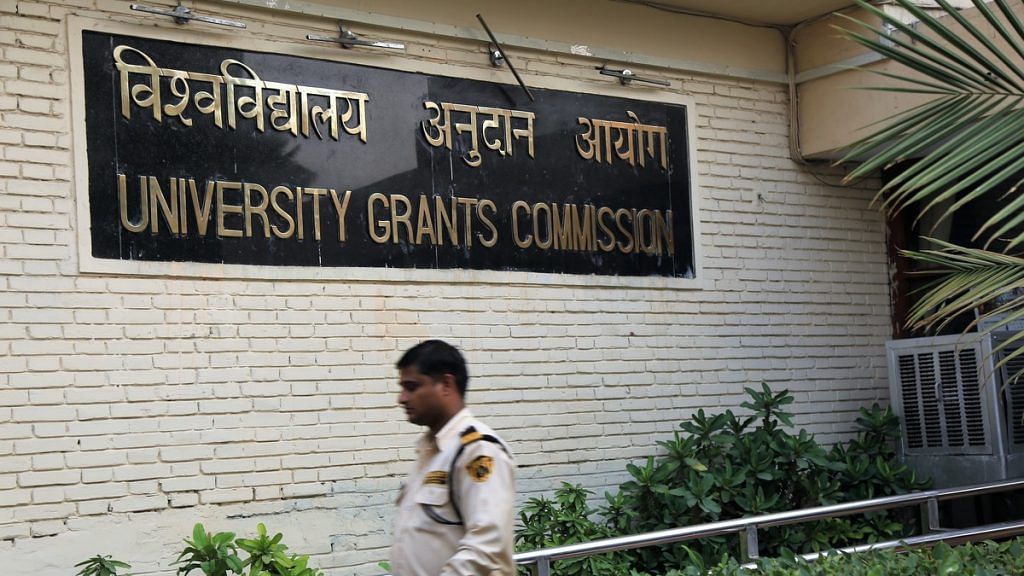New Delhi: Re-publishing or re-cycling one’s own academic work will now affect selection and promotions of academics in colleges and universities, the University Grants Commission (UGC) said Monday.
In a notification seeking to “draw the attention of the academic community”, the UGC called the re-use of own academic work “self-plagiarism”, and warned everyone against the practice.
“Reproduction, in part or whole, of one’s own previously published work without adequate citation and proper acknowledgment and claiming the most recent work as new and original for any academic advantage amounts to ‘text-recycling’ (also known as ‘self-plagiarism’) and is not acceptable,” the notification issued by UGC Secretary Rajnish Jain said.
Also read:School for climate change, hostels with shops — how DU plans to become Institute of Eminence
What is self-plagiarism according to UGC?
The UGC notification has explained what self-plagiarism means.
Text-recycling or self-plagiarism, according to the UGC notification, includes republishing the same paper already published elsewhere without due and full citation and publishing smaller or excerpted work from a longer and previous one without due and full citations in order to show a larger number of publications.
Reusing data already used in a published work, or communicated for publication, in another work without due and full citation, and breaking up a longer or larger study into smaller sections and publishing them as altogether new work without due and full citation will also be construed as self-plagiarism.
The notification said paraphrasing one’s own previously published work without due and full citation of the original will also be considered recycling.
Evaluation of published work to ensure it’s not self-plagiarised
The notice also warned that self-citations do not add any numbers to the individual’s citation index in global academia.
“Vice Chancellors, selection committees, screening committees and all/any experts involved in academic performance/evaluation and assessment are hereby strongly advised that their decisions in the case of promotions, selections, credit allotment, award of research degrees must be based on an evaluation of the applicant’s published work to ensure that the work being submitted for promotion/selection is not self-plagiarized,” the notice said.
The UGC said it will soon issue a set of parameters to evaluate the instances of self-plagiarism.
“In order to ensure that plagiarised work does not acquire any credibility, UGC has issued guidelines against plagiarism earlier as well. This notice is in continuation to the effort to curb plagiarism in academia,” Jain said.
Worried about the rising cases of plagiarism across Indian institutes, the UGC had last year in December made it mandatory for students to learn about research ethics and plagiarism as a part of their coursework.
Also read:This Bihar university is conducting exams from tomorrow — on WhatsApp
